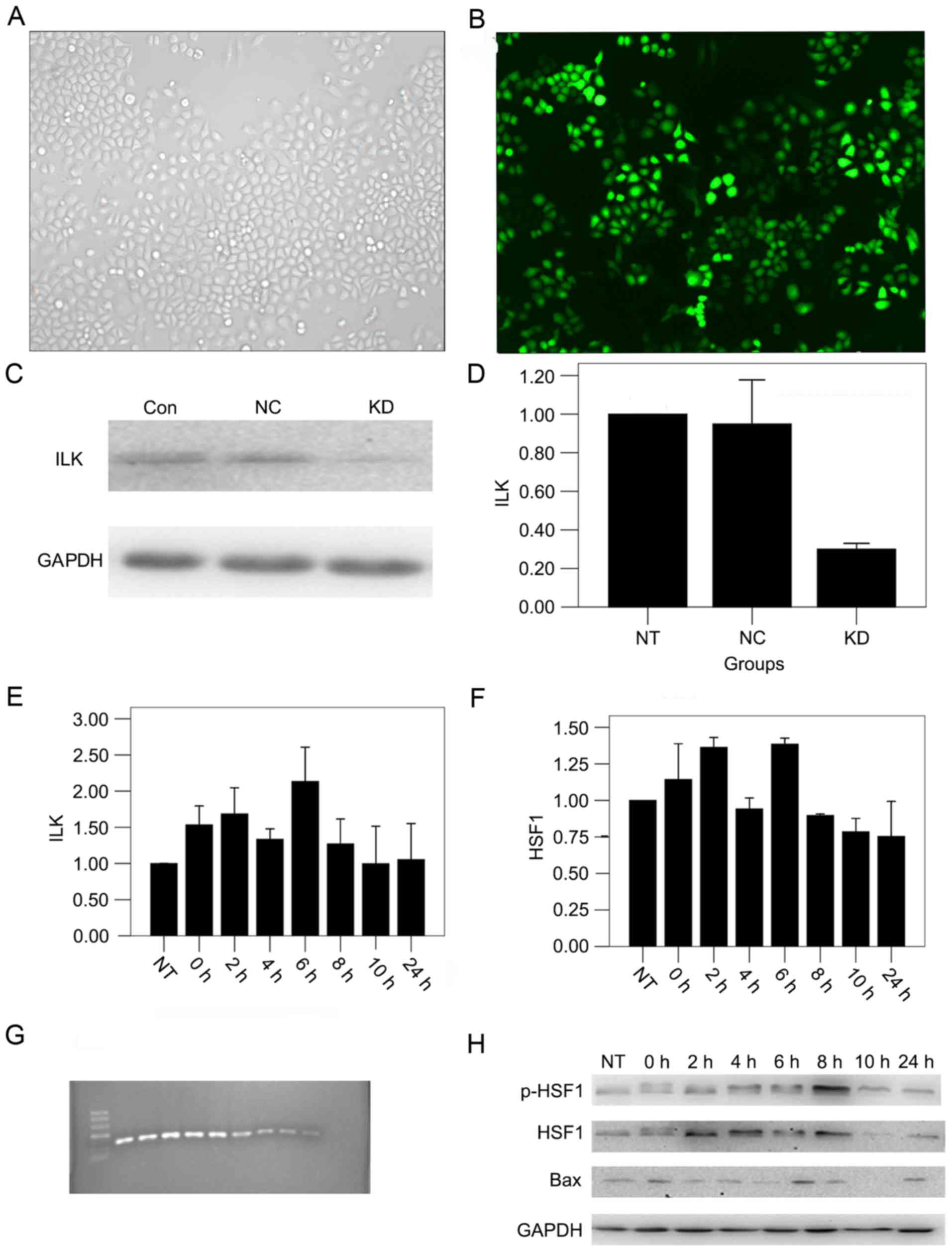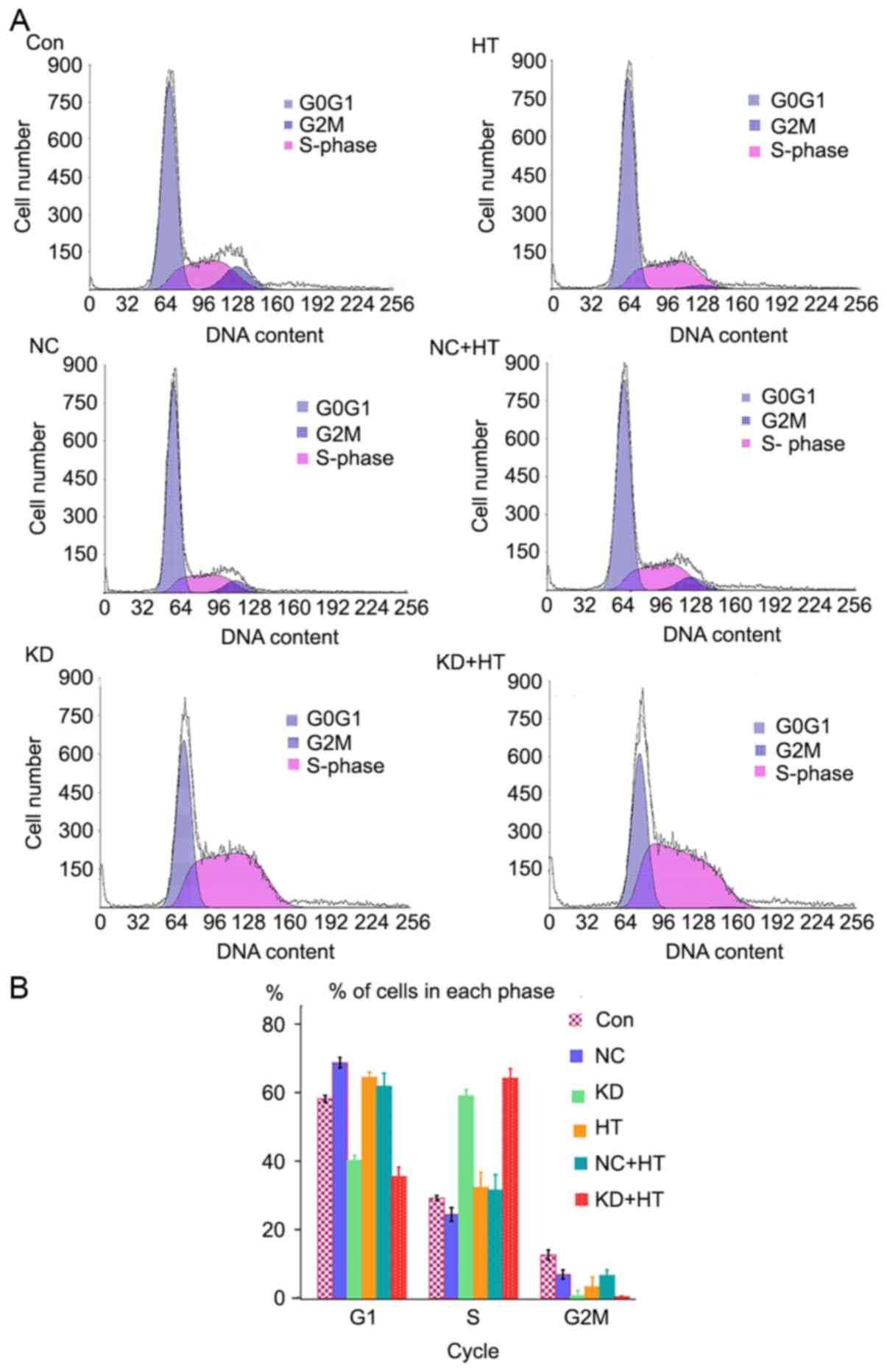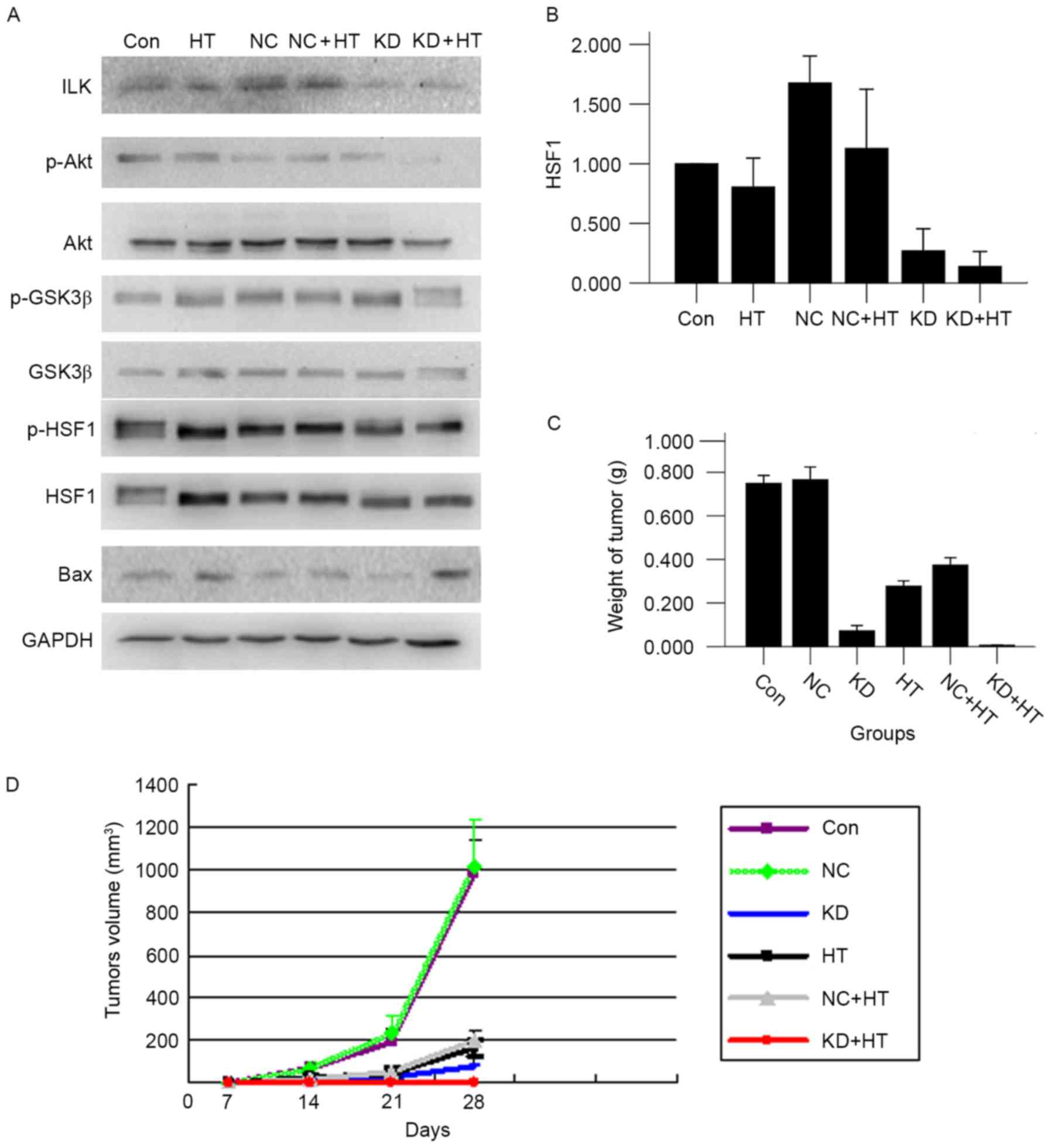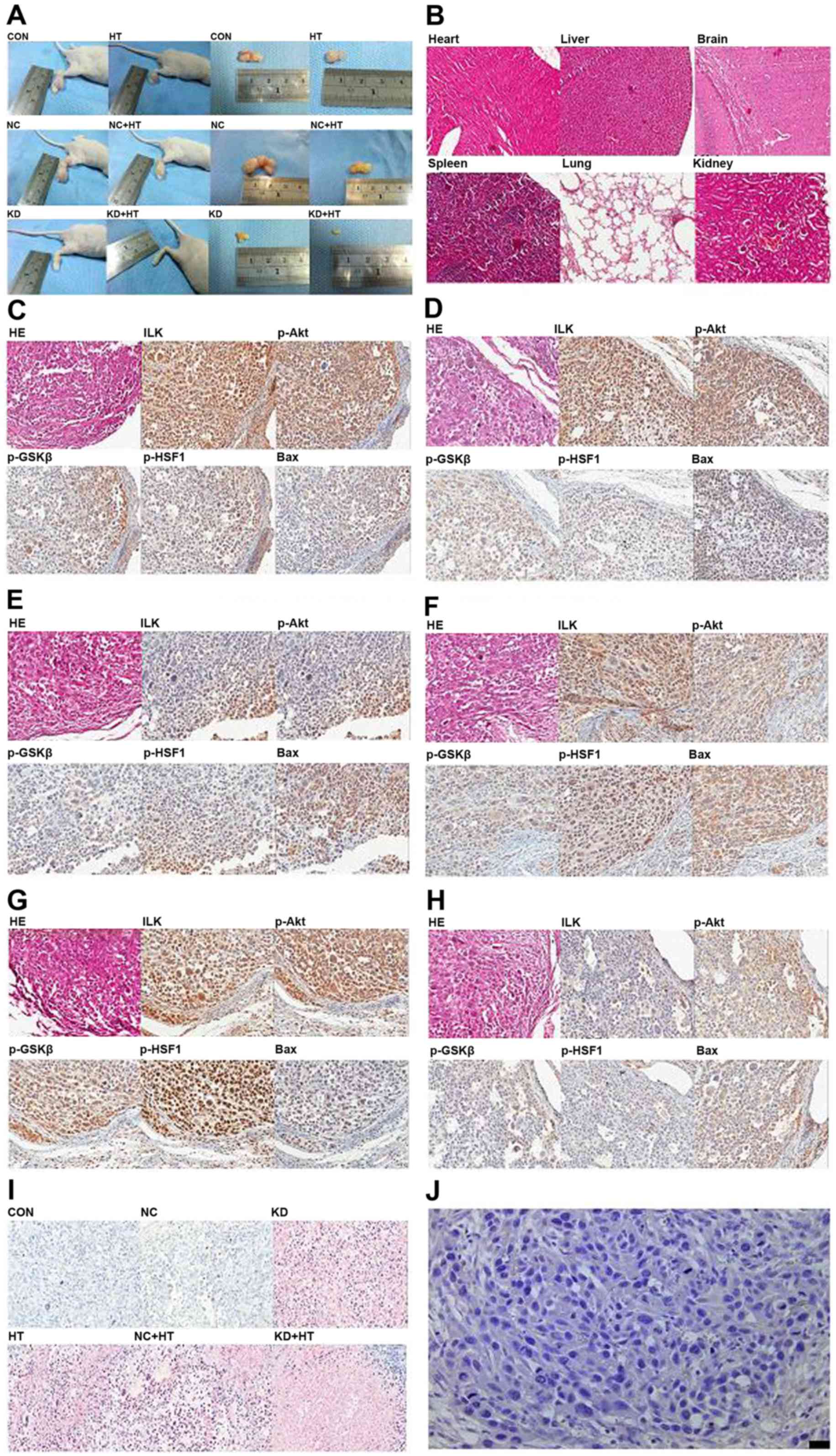|
1
|
Perri F, Muto P, Aversa C, Daponte A,
Della Vittoria G, Pepe S and Caponigro F: Integrated therapeutic
approaches in head and neck cancer: The importance of
multidisciplinary team management. Anticancer Agents Med Chem.
13:834–843. 2013. View Article : Google Scholar : PubMed/NCBI
|
|
2
|
Antoniv TT and Ivashkiv LB:
Interleukin-10-induced gene expression and suppressive function are
selectively modulated by the PI3K-Akt-GSK3 pathway. Immunology.
132:567–577. 2011. View Article : Google Scholar : PubMed/NCBI
|
|
3
|
Aksamitiene E, Kiyatkin A and Kholodenko
BN: Cross-talk between mitogenic Ras/MAPK and survival PI3K/Akt
pathways: A fine balance. Biochem Soc Trans. 40:139–146. 2012.
View Article : Google Scholar : PubMed/NCBI
|
|
4
|
Troussard AA, Mawji NM, Ong C, Mui A,
St-Arnaud R and Dedhar S: Conditional knock-out of integrin-linked
kinase demonstrates an essential role in protein kinase B/Akt
activation. J Biol Chem. 278:22374–22378. 2003. View Article : Google Scholar : PubMed/NCBI
|
|
5
|
Marotta A, Parhar K, Owen D, Dedhar S and
Salh B: Characterisation of integrin-linked kinase signalling in
sporadic human colon cancer. Br J Cancer. 88:1755–1762. 2003.
View Article : Google Scholar : PubMed/NCBI
|
|
6
|
Tasian SK, Teachey DT and Rheingold SR:
Targeting the PI3K/mTOR pathway in pediatric hematologic
malignancies. Front Oncol. 4:1082014. View Article : Google Scholar : PubMed/NCBI
|
|
7
|
Zheng K, Wang G, Li C, Shan X and Liu H:
Knockdown of ILK inhibits glioma development via upregulation of
E-cadherin and downregulation of cyclin D1. Oncol Rep. 34:272–278.
2015. View Article : Google Scholar : PubMed/NCBI
|
|
8
|
Zhao X, Xu Z, Wang Z, Wu Z, Gong Y, Zhou L
and Xiang Y: RNA silencing of integrin-linked kinase increases the
sensitivity of the A549 lung cancer cell line to cisplatin and
promotes its apoptosis. Mol Med Rep. 12:960–966. 2015. View Article : Google Scholar : PubMed/NCBI
|
|
9
|
Dicheva BM and Koning GA: Targeted
thermosensitive liposomes: An attractive novel approach for
increased drug delivery to solid tumors. Expert Opin Drug Deliv.
11:83–100. 2014. View Article : Google Scholar : PubMed/NCBI
|
|
10
|
Yamamoto D, Inui T, Tsubota Y, Sueoka N,
Yamamoto C, Kuwana K and Yamamoto M: The utility of hyperthermia
for local recurrence of breast cancer. World J Surg Oncol.
10:2012012. View Article : Google Scholar : PubMed/NCBI
|
|
11
|
Liang XH, He YW, Tang YL, Wu JL, Gao XP,
Xiao GZ and Mao ZY: Thermochemotherapy of lower lip squamous cell
carcinoma without metastases: An experience of 31 cases. J
Craniomaxillofac Surg. 38:260–265. 2010. View Article : Google Scholar : PubMed/NCBI
|
|
12
|
Tao Y, Guo Y, Liu W, Zhang J, Li X, Shen
L, Ru Y, Xue Y, Zheng J, Liu X, et al: AKT inhibitor suppresses
hyperthermia-induced Ndrg2 phosphorylation in gastric cancer cells.
Braz J Med Biol Res. 46:394–404. 2013. View Article : Google Scholar : PubMed/NCBI
|
|
13
|
Schaeffer DF, Assi K, Chan K, Buczkowski
AK, Chung SW, Scudamore CH, Weiss A, Salh B and Owen DA: Tumor
expression of integrin-linked kinase (ILK) correlates with the
expression of the E-cadherin repressor snail: An
immunohistochemical study in ductal pancreatic adenocarcinoma.
Virchows Arch. 456:261–268. 2010. View Article : Google Scholar : PubMed/NCBI
|
|
14
|
Gao Z, Liu F, Yin P, Wan C, He S, Liu X,
Zhao H, Liu T, Xu J and Guo S: Inhibition of heat-induced apoptosis
in rat small intestine and IEC-6 cells through the AKT signaling
pathway. BMC Vet Res. 9:2412013. View Article : Google Scholar : PubMed/NCBI
|
|
15
|
Zhao D, Tang XF, Yang K, Liu JY and Ma XR:
Over-expression of integrin-linked kinase correlates with aberrant
expression of Snail, E-cadherin and N-cadherin in oral squamous
cell carcinoma: implications in tumor progression and metastasis.
Clin Exp Metastasis. 29:957–969. 2012. View Article : Google Scholar : PubMed/NCBI
|
|
16
|
Nakagawa T, Ohnishi K, Kosaki Y, Saito Y,
Horlad H, Fujiwara Y, Takeya M and Komohara Y: Optimum
immunohistochemical procedures for analysis of macrophages in human
and mouse formalin fixed paraffin-embedded tissue samples. J Clin
Exp Hematop. 57:31–36. 2017. View Article : Google Scholar : PubMed/NCBI
|
|
17
|
He B, Meng YH and Mivechi NF: Glycogen
synthase kinase 3beta and extracellular signal-regulated kinase
inactivate heat shock transcription factor1 by facilitating the
disappearance of transcriptionally active granules after heat
shock. Mol Cell Biol. 18:6624–6633. 1998. View Article : Google Scholar : PubMed/NCBI
|
|
18
|
Livak KJ and Schmittgen TD: Analysis of
relative gene expression data using real-time quantitative PCR and
the 2(-Delta Delta C(T)) method. Methods. 25:402–408. 2001.
View Article : Google Scholar : PubMed/NCBI
|
|
19
|
Chen X and Zhang J, Han C, Dai H, Kong X,
Xu L, Xia Q, Zhang M and Zhang J: A sexual dimorphism influences
bicyclol-induced hepatic heat shock factor 1 activation and
hepatoprotection. Mol Pharmacol. 88:38–47. 2015. View Article : Google Scholar : PubMed/NCBI
|
|
20
|
Rahman MA, Amin AR, Wang D, Koenig L,
Nannapaneni S, Chen Z, Wang Z, Sica G, Deng X, Chen ZG and Shin DM:
RRM2 regulates Bcl-2 in head and neck and lung cancers: A potential
target for cancer therapy. Clin Cancer Res. 19:3416–3428. 2013.
View Article : Google Scholar : PubMed/NCBI
|
|
21
|
de la Torre NG, Buley I, Wass JA and
Turner HE: Angiogensis and lymphangiogenesis in thyroid
proliferative lesions: Relationship to type and tumour behaviour.
Endocr Relat Cancer. 13:931–944. 2006. View Article : Google Scholar : PubMed/NCBI
|
|
22
|
Marchesin V, Castro-Castro A, Lodillinsky
C, Castagnino A, Cyrta J, Bonsang-Kitzis H, Fuhrmann L, Irondelle
M, Infante E, Montagnac G, et al: ARF6-JIP3/4 regulate endosomal
tubules for MT1-MMP exocytosis in cancer invasion. J Cell Biol.
211:339–358. 2015. View Article : Google Scholar : PubMed/NCBI
|
|
23
|
Qian DC, Byun J, Han Y, Greene CS, Field
JK, Hung RJ, Brhane Y, Mclaughlin JR, Fehringer G, Landi MT, et al:
Identification of shared and unique susceptibility pathways among
cancers of the lung, breast, and prostate from genome-wide
association studies and tissue-specific protein interactions. Hum
Mol Genet. 24:7406–7420. 2015. View Article : Google Scholar : PubMed/NCBI
|
|
24
|
Zeise E and Rensing L: Hyperthermia
pre-treatment protects rats IPC-81 leukaemia cells against heat-
and hydrogen peroxide-induced apoptosis. Int J Hyperthermia.
18:344–360. 2002. View Article : Google Scholar : PubMed/NCBI
|
|
25
|
Bijur GN and Jope RS: Opposing actions of
phosphatidylinositol 3-kinase and glycogen synthase kinase-3beta in
the regulation of HSF-1 activity. J Neurochem. 75:2401–2408. 2000.
View Article : Google Scholar : PubMed/NCBI
|
|
26
|
Zhu XY, Liu N, Liu W, Song SW and Guo KJ:
Silencing of the integrin-linked kinase gene suppresses the
proliferation, migration and invasion of pancreatic cancer cells
(Panc-1). Genet Mol Biol. 35:538–544. 2012. View Article : Google Scholar : PubMed/NCBI
|
|
27
|
Li Q, Li C, Zhang YY, Chen W, Lv JL, Sun J
and You QS: Silencing of integrin-linked kinase suppresses in
vivo tumorigenesis of human ovarian carcinoma cells. Mol Med
Rep. 7:1050–1054. 2013. View Article : Google Scholar : PubMed/NCBI
|
|
28
|
Persad S, Attwell S, Gray V, Delcommenne
M, Troussard A, Sanghera J and Dedhar S: Inhibition of
integrin-linked kinase (ILK) suppresses activation of protein
kinase B/Akt and induces cell cycle arrest and apoptosis of
PTEN-mutant prostate cancer cells. Proc Natl Acad Sci USA. 97:pp.
3207–3212. 2000, View Article : Google Scholar : PubMed/NCBI
|
|
29
|
Makino K, Day CP, Wang SC, Li YM and Hung
MC: Upregulation of IKKalpha/IKKbeta by integrin-linked kinase is
required for HER2/neu-induced NF-kappaB antiapoptotic pathway.
Oncogene. 23:3883–3887. 2004. View Article : Google Scholar : PubMed/NCBI
|
|
30
|
Jevtov I, Zacharogianni M, van Oorschot
MM, van Zadelhoff G, Aguilera-Gomez A, Vuillez I, Braakman I, Hafen
E, Stocker H and Rabouille C: TORC2 mediates the heat stress
response in Drosophila by promoting the formation of stress
granules. J Cell Sci. 128:2497–2508. 2015. View Article : Google Scholar : PubMed/NCBI
|
|
31
|
Ohnishi K, Yasumoto J, Takahashi A and
Ohnishi T: LY294002, an inhibitor of PI-3K, enhances heat
sensitivity independently of p53 status in human lung cancer cells.
Int J Oncol. 29:249–253. 2006.PubMed/NCBI
|
|
32
|
Ma N, Szmitko P, Brade A, Chu I, Lo A,
Woodgett J, Klamut H and Liu FF: Kinase-dead PKB gene therapy
combined with hyperthermia for human breast cancer. Cancer Gene
Ther. 11:52–60. 2004. View Article : Google Scholar : PubMed/NCBI
|



















